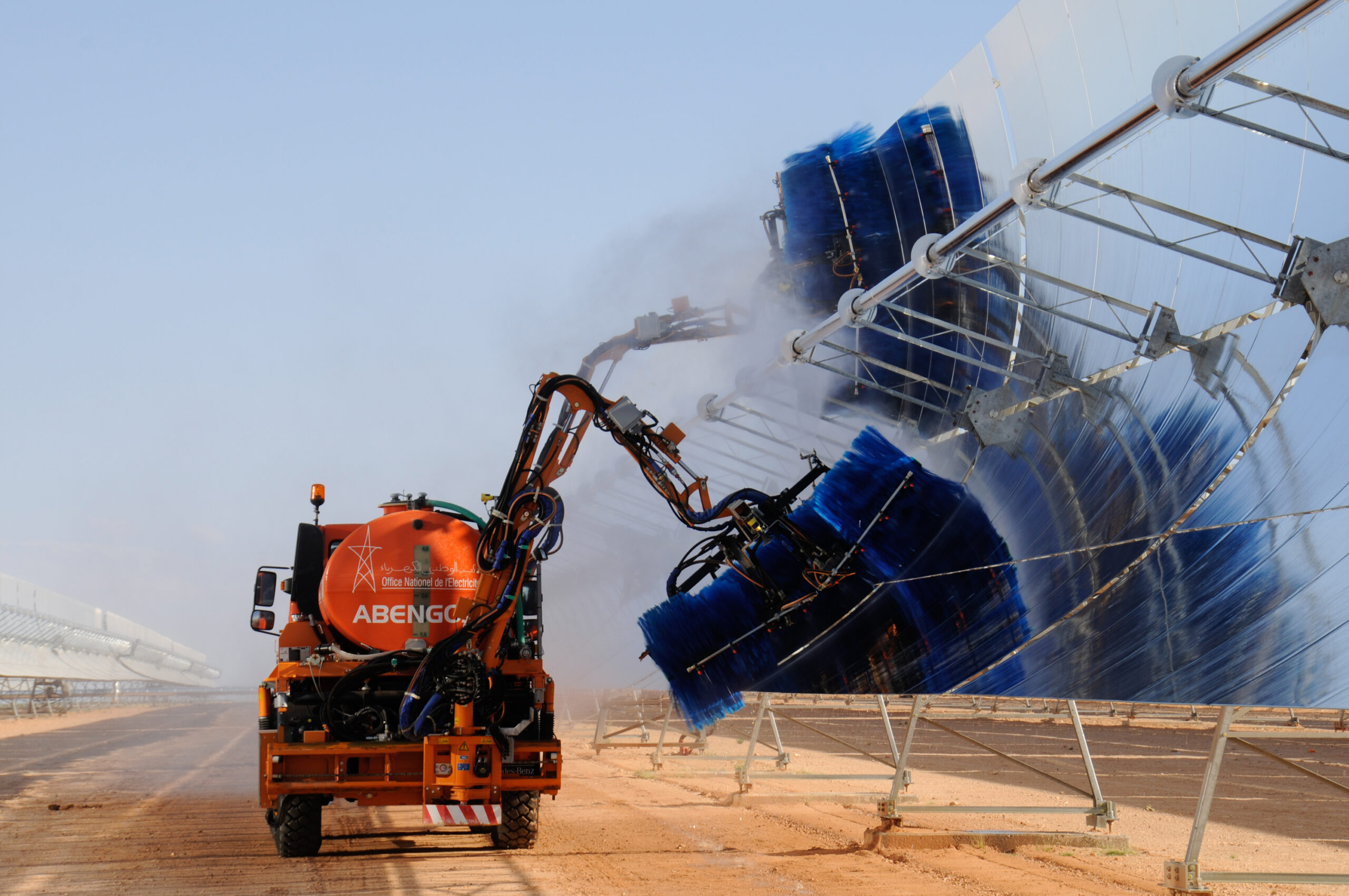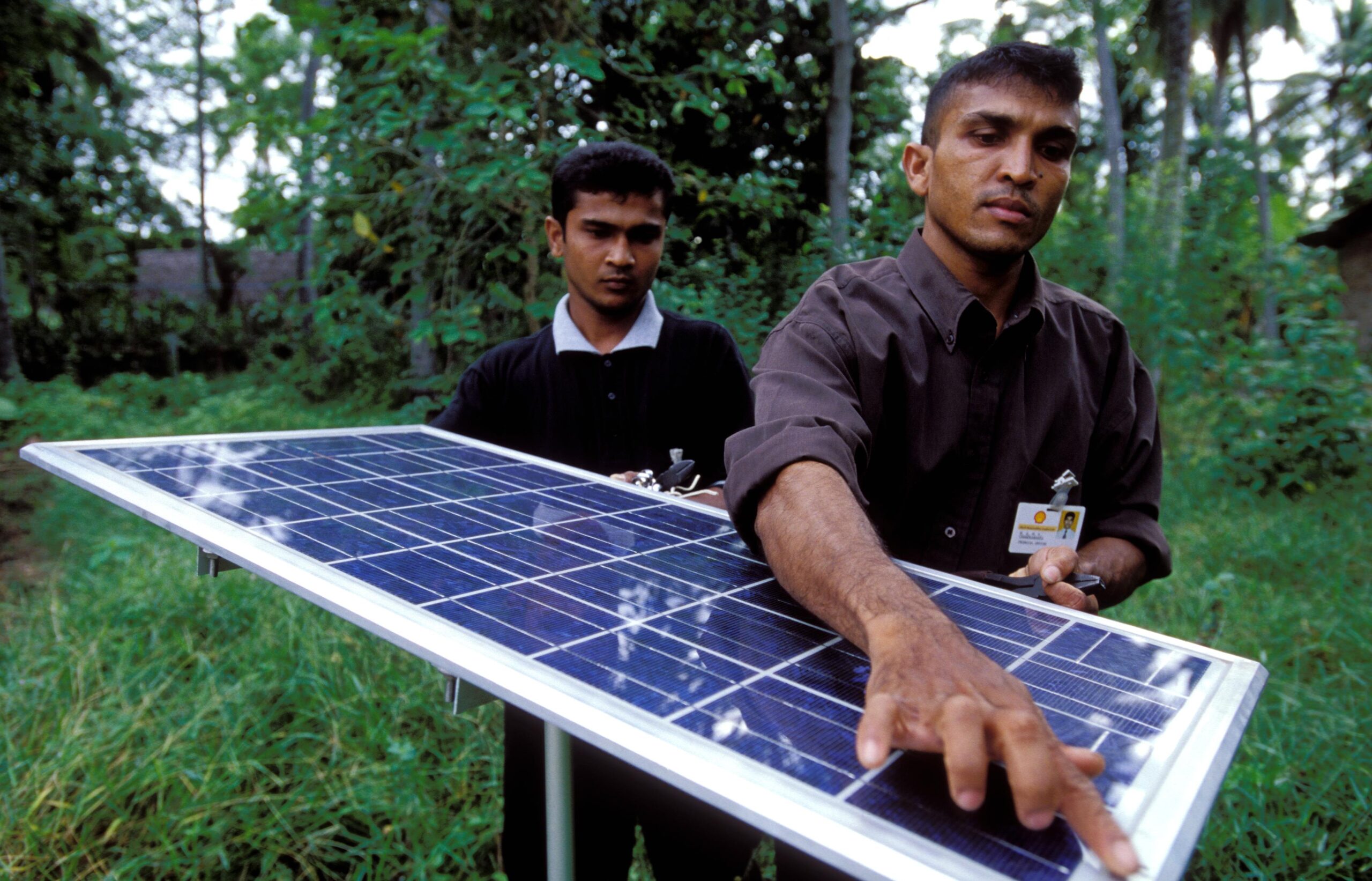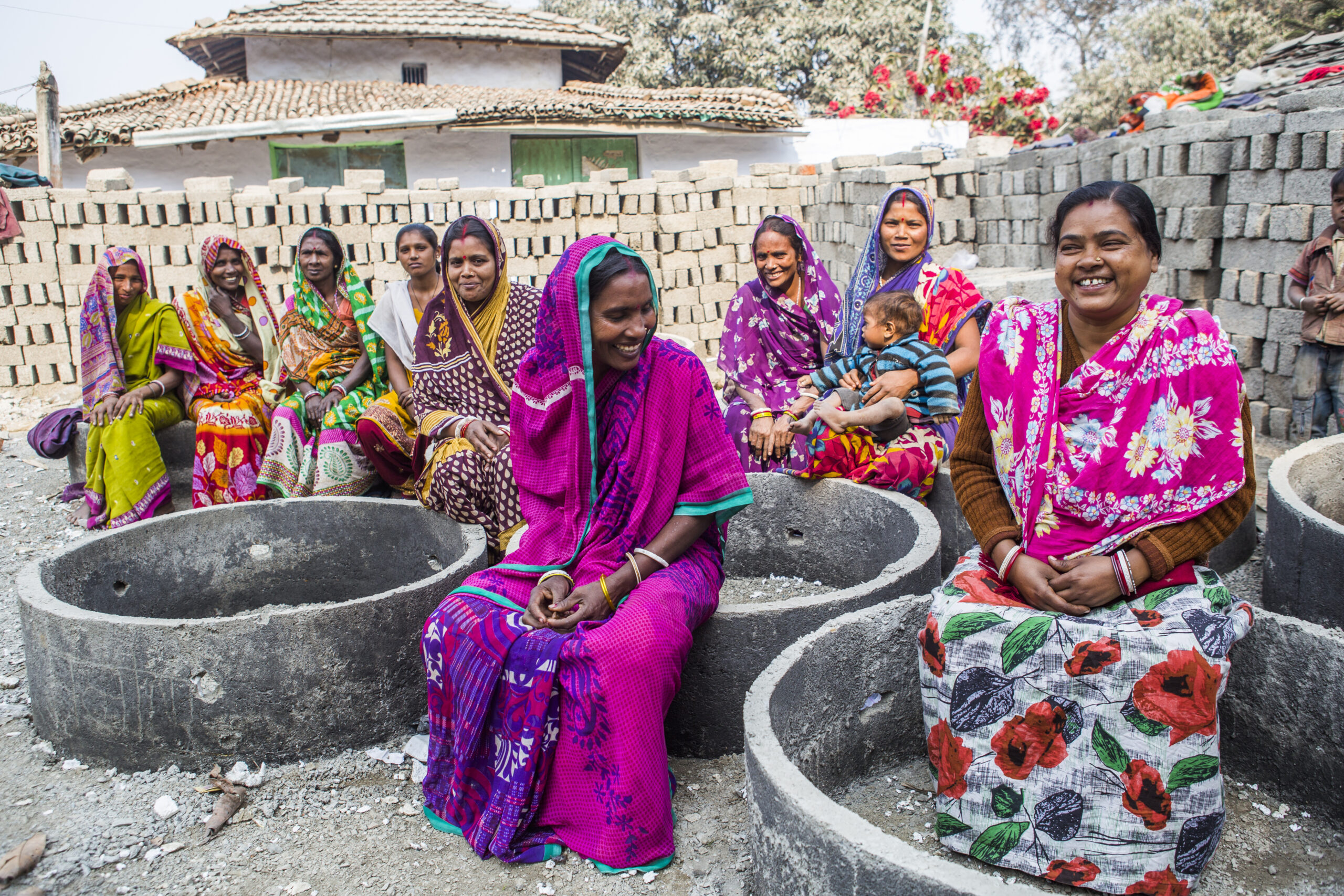'ILO photo e53477' by International Labour Organization ILO via Flickr (CC BY-NC-ND 2.0) https://flic.kr/p/2iX2sRk Country : Tunisia Date : 25/02/2016 Copyright : Marcel Crozet / ILO

Breaking Down Silos: Integrating Gender and Climate Goals in Blended Finance Transactions
25 October 2024
Growing evidence suggests that women play a critical role in achieving climate goals; both as leaders in advancing climate solutions, as well as beneficiaries. There is therefore an urgent need for more investments into transactions that incorporate both gender and climate considerations.
Yet, mainstreaming gender within climate vehicles often encounters a myriad of barriers. This is apparent in the blended finance market, where out of the 551 climate blended finance deals in Convergence’s Historical Deals Database (HDD), only 22% were gender-responsive, a considerably lower proportion than the overall trend in the blended finance market where 31% of the deals were gender-responsive. Recognizing this, the Catalytic Climate Finance Facility (CC Facility) Learning Hub recently released its inaugural report on gender-responsive blended climate finance transactions in the energy sector. The report provides an analysis of the data behind these transactions and highlights case study examples. It also explores the challenges to successfully launching gender-energy blended transactions and suggests recommendations for investors and practitioners to help increase their effectiveness in implementing these deals.
A commonly discussed challenge was simultaneously addressing climate and gender objectives within the same transaction. Often, investors approach each in a silo, understanding one of the objectives but failing to be proficient in the other. This is especially the case for smaller funds that do not possess large technical assistance (TA) facilities, or for institutions with limited resources that must prioritize impact measurement and monitoring for a single or small set of objectives.
A lack of standardized frameworks and metrics for these dual objectives further complicates efforts. While climate metrics, especially those for mitigation, are more established, investors and practitioners repeatedly signaled the lack of standardization in gender-related metrics as a significant challenge for structuring and investing in gender-responsive climate transactions. Moreover, limited or non-disaggregated data can also make globally recognized metrics and criteria neither useful nor relevant.
The report suggests several ways of overcoming these challenges to integrate both gender and climate within a transaction. One is through monetizing the gender co-benefits of climate vehicles through gender credits. Co-benefits are advantages that climate solutions provide above and beyond helping to fight climate change. Tacking gender co-benefits onto a climate transaction can be strategic since it capitalizes on investor demand for climate while adding a premium for gender equality. The second method is by using TA and financial incentives simultaneously to hit gender key performance indicators (KPIs) within climate transactions.
Monetizing gender co-benefits
Two cases demonstrate how gender co-benefits can be monetized through the sale of gender credits.
The first is the Clean Impact Bond (CIB), launched by Sistema.bio in 2022. The CIB is a type of development impact bond that contributes to the broader use of clean cooking technologies by increasing access to clean appliances for low-income customers across Africa. It does this by drawing on upfront funding for small- and medium-sized enterprises (SMEs) that manufacture and distribute these appliances. The outcome buyer will purchase the health and gender co-benefits generated from the use of these appliances, as a type of credit. Considering women are largely the demographic positively affected by clean cooking, gender co-benefits can play an important role in such a vehicle.
The CIB demonstrates that there is a viable way to monetize gender co-benefits in the climate finance market by accomplishing two crucial outcomes: i) it provides data-driven metrics for quantifying the impact and monetary value of gender and health, and ii) it demonstrates the existence of willing buyers for gender and health co-benefits. In this way, the CIB offers a starting point for determining a revenue stream for gender credits, as well as identifying the presence of outcome funders.
The second case that exemplifies the use of gender credits is the W+ Standard issued by WOCAN. The W+ Standard allows projects to certify quantifiable contributions to women’s empowerment and emissions reduction. For example, carbon emissions reduction projects that deliver benefits to women can add the W+ Standard to their existing projects, which can then be sold for a premium price to carbon buyers seeking co-benefits for gender equality/women’s empowerment, or to address SDG 5 (Gender Equality). One credit is equivalent to a 10% improvement in the lives of women in the project community.1 The W+ Standard requires that at least 20% of the price of the sold credit is provided to women of the project community, to support their self-determined goals. In general, incorporating gender credits into a transaction can encourage more rigorous tracking and reporting on gender-related outcomes, leading to greater transparency and accountability in how investments impact women and gender equality.
Using TA and financial incentives to incorporate a gender-lens
A further recommendation within the report for incorporating a gender-lens in climate transactions is to deploy TA and financial incentives together. One barrier to incorporating a gender-lens is the lack of knowledge of how to do so; TA can provide the necessary training to help a deal sponsor develop and measure gender outcomes. Financial incentives can then be an important tool to encourage companies to follow-through and meet these established goals.
An example of a transaction that has done this is the Beyond Finance Asia-Pacific Facility, a blended finance initiative that aims to enhance women’s access to funding and essential services in the Asia-Pacific and Sub-Saharan Africa regions. Beyond Finance uses TA to help incorporate a gender-lens in the development of climate adaptation products. When KPIs are achieved, it triggers the provision of interest rate reductions for investees.
Meanwhile, Deetken Impact, a fund manager, uses TA to improve the gender scores of its portfolio companies. As part of its due diligence process, Deetken devised a gender scorecard that covers five main principles: women in leadership and governance; workplace equity; professional development programs for women; value chain and advocacy; and community engagement. Through their TA training programs, they have been able to improve outcomes across each of these focus areas, deepening impacts and moving beyond simple headcounts. Deetken also uses TA to improve gender outcomes within large-scale solar projects while partnering with Inter-American Development Bank (IDB) Invest, which provides financial incentives in the form of lower interest rates to encourage a transaction to hit its climate and gender milestones.
These cases demonstrates that while financial incentives can be a powerful motivator for prioritizing gender outcomes, TA-enabled advisory support is a necessary precursor to creating and reaching reasonable and customized targets.
An opportunity to breakdown silos
Whether a transaction uses gender credits to monetize the co-benefits of gender in climate transactions or incentivizes gender-lens investing through deploying financial instruments and TA simultaneously, there are opportunities for blended finance deal sponsors to break down silos to achieve dual social goals. Gender credits can help create a scalable, standardized framework for investors to understand the impacts of gender-lens investing. Meanwhile, gender advisory support can help transactions meet KPIs, and even unlock financial incentives such as reduced interest rates, that create momentum for reaching gender goals. By adopting these strategies, investors can more effectively align their financial goals with broader social and environmental impacts, driving progress towards a just and resilient transition.
blog
Lead Partner
Convergence & Climate Policy Initiative
Convergence is the global network for blended finance, aiming to increase private investment in emerging markets and developing economies. Climate Policy Initiative is an analysis and advisory organization that supports governments, businesses, and financial institutions in driving economic growth while addressing climate change. Together they work on the Catalytic Climate Finance Facility (CC Facility) which accelerates the implementation of high-impact, ready-to-scale financial structures.
Read moreAssociated Project
Catalytic climate finance: A global learning hub
'Solar panels being cleaned' by World Bank Photo Collection via Flickr (CC BY-NC-ND 2.0) https://flic.kr/p/8nQdYa

CEDCA Panel Discussion: Opposition and resistance to clean energy transition
Thursday 24 October 2024
While switching from fossil fuels to clean energy addresses the climate crisis and offers development opportunities, opposition to the transition is rife. The panel will discuss the pitfalls of clean energy transition, and the drivers thereof, and strategies to inform policy and practice. Watch now While switching from fossil fuels to clean energy addresses the […]
'Solar panel on used for lighting village homes' by World Bank Photo Collection via Flickr (CC BY-NC-ND 2.0) https://flic.kr/p/42H6dY

An Overview of Impact Pathways
27 November 2024
The CEDCA Overview of Impact Pathways (Figure 1) presents a visual summary of key impact pathways from across the 12 projects of the Clean Energy for Development: A Call to Action (CEDCA) initiative, funded by the International Development Research Centre (IDRC). It is the result of an analysis of initial documentation from each of the […]
Women are leaders in local adaptation by UNDP Climate via Flickr (CC BY-NC 2.0) https://flic.kr/p/2kuLkzw

Call for gender-smart Fund Managers
19 December 2024
Action Research, Impact Measurement & Case Study Opportunity Background: 2X Global, in collaboration with Aspen Network of Development Entrepreneurs (ANDE) and supported by Canada’s International Development Research Center (IDRC), is launching an innovative research project seeking to improve the outcomes for women-led clean energy enterprises through applied research. This applied research will focus on Sub-Saharan […]

